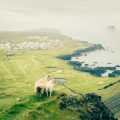Introduction to Solo Kayaking and Wild Camping in the UK
There is something quietly magical about setting off on a solo adventure along Britain’s rivers and lakes, paddle in hand and tent tucked away. Kayaking alone through the tranquil waterways of the UK brings with it a gentle sense of freedom, allowing you to slip away from the hum of everyday life and truly connect with nature at your own pace. From the peaceful stretches of the Norfolk Broads to the winding beauty of Scotland’s lochs, every journey is an invitation to discover solitude as a companion rather than a challenge.
Wild camping, too, has its own charm here—nestling under ancient trees or beside quiet waters, feeling the cool night air and waking to birdsong and mist curling over the water. For many, solo adventures are not about daring feats but about finding peace and confidence in one’s own company. Of course, venturing out alone in the British outdoors comes with unique joys and gentle challenges: learning to read the weather, respecting local wildlife, and embracing those small moments of uncertainty that turn into treasured memories.
In this guide, we’ll journey through what makes solo kayaking and wild camping in the UK so special—celebrating both the comfort of familiar landscapes and the thrill of new discoveries, all wrapped up in the reassuring embrace of Britain’s great outdoors.
2. Choosing Your Kayaking Route: Serene Waterways Across the UK
Setting out on a solo kayaking adventure and wild camping journey in the UK is truly magical, but the foundation of any successful trip starts with selecting the right waterway. Britain offers a tapestry of rivers, lochs, and coastal stretches that are perfect for those seeking peace and a closer connection to nature. To make your experience both enjoyable and responsible, it’s important to consider local guidelines, wildlife habitats, and access rights as you plan.
Discovering Your Ideal Paddle Spot
The UK is home to an impressive variety of kayaking routes. Whether you’re drawn to tranquil Scottish lochs, gentle English rivers, or the rugged coastlines of Wales and Cornwall, each location offers its own charm. Here’s a helpful overview:
| Region | Waterway | Type | Access Considerations |
|---|---|---|---|
| Scotland | Loch Lomond | Freshwater Loch | Right to Roam (Scottish Outdoor Access Code) |
| England | River Wye | River | Check for navigation rights; respect private land |
| Wales | Llyn Tegid (Bala Lake) | Lake | Permits may be required; local byelaws apply |
| Cornwall | Fowey Estuary | Coastal/Estuary | Tidal conditions; check harbour regulations |
Navigating Access Rights and Local Nature
Before launching your kayak, take time to familiarise yourself with the local rules. In Scotland, the ‘Right to Roam’ allows for broader public access, provided you act responsibly under the Scottish Outdoor Access Code. However, in England and Wales, access can be more restricted—some waterways have shared navigation rights while others require permission from landowners or permits from local authorities.
Top Tips for Respectful Paddling:
- Avoid disturbing nesting birds or sensitive habitats along riverbanks and shores.
- If wild camping, pitch up late and leave early—always follow ‘Leave No Trace’ principles.
- Paddle quietly where possible and keep group sizes small when travelling with others.
Selecting your route thoughtfully ensures your solo kayaking adventure remains both safe and harmonious with the British countryside. By respecting local nature and adhering to access rights, you’ll help preserve these beautiful spots for future explorers.
![]()
3. Essential Gear for a Safe and Cosy Night Under the Stars
When venturing out on a solo kayaking and wild camping adventure in the UK, being well-prepared is key to ensuring both safety and comfort. British weather can be famously unpredictable, so packing the right kit will make all the difference between a memorable night under the stars and an uncomfortable ordeal.
Stay Dry and Warm: The Basics
Your tent or bivvy bag should be lightweight yet robust enough to withstand sudden rain or gusty winds. Opt for a waterproof sleeping bag rated for lower temperatures—even summer nights by British lakes and rivers can get chilly. Dont forget an insulated sleeping mat for extra warmth and cushioning against the cold ground.
Safety First: Navigation and Emergency Essentials
A map and compass are must-haves, even if you rely on GPS; batteries can run out when you least expect it. Pack a reliable head torch with spare batteries, as well as a basic first aid kit tailored for minor paddling scrapes or insect bites. A whistle and a fully charged mobile phone (stored in a waterproof pouch) are also vital for peace of mind.
Paddler’s Comforts: Cosy Touches for Wild Nights
For that extra bit of homey comfort, bring along a compact camping stove and your favourite British tea bags—there’s nothing like a warm cuppa after a day on the water! A sturdy mug, reusable cutlery, and some simple meal pouches will keep you well-fed without weighing you down. And don’t forget biodegradable wet wipes for quick freshen-ups before tucking into your sleeping bag.
Respecting Nature: Leave No Trace
Lastly, pack rubbish bags and eco-friendly toiletries to ensure you leave each wild spot as pristine as you found it. By preparing thoughtfully, youll be ready to embrace solitude in the great outdoors while staying snug, safe, and respectful of Britain’s beautiful natural landscapes.
4. Mindful Preparation: Safety, Permissions, and Leave No Trace
Venturing into solo kayaking and wild camping across the UK is an adventure that calls for thoughtful planning, especially when it comes to safety, respecting local regulations, and cherishing the countryside. As you set off on your journey, it’s important to make sure every step you take reflects true British values of responsibility and care for the environment.
Safety First: Essential Checks and Kit
Before you head out onto the water or pitch your tent beneath the stars, a well-prepared kit and a clear safety plan are essential. Always check the weather forecast—British weather can change quickly—and make sure someone knows your route and expected return time. The following table lists key items to include in your kit:
| Safety Item | Why It Matters |
|---|---|
| Personal Flotation Device (PFD) | Keeps you safe in case you capsize |
| Map & Compass | Essential for navigation, even if you have GPS |
| First Aid Kit | For minor injuries or emergencies |
| Dry Bags | Keeps essentials dry while kayaking |
| Headtorch & Spare Batteries | Vital for visibility at night |
| Mobile Phone in Waterproof Case | For emergency contact |
Obtaining Local Permissions: Respecting Rights of Way
The UK’s patchwork of land ownership means that access rights vary from place to place. While some areas welcome wild campers and kayakers, others require explicit permission. Always check if the waterways are open to public navigation—such as many stretches of the River Thames or Scottish lochs—and seek consent from landowners where necessary. A polite enquiry goes a long way; remember, kindness and respect are at the heart of British outdoor culture.
The Right to Roam vs. Local Restrictions
Scotland operates under more generous access laws with its “right to roam,” but in England, Wales, and Northern Ireland, restrictions are stricter—especially regarding wild camping. Use official resources like local council websites or Ordnance Survey maps for up-to-date guidance.
Leave No Trace: Protecting Britain’s Natural Beauty
Part of embracing solitude in nature is leaving it just as you found it—or better! Adhering to Leave No Trace principles ensures our wild places remain unspoilt for future generations. This means taking all rubbish home, avoiding campfires where prohibited, using a portable stove instead, and minimising disturbance to wildlife.
| Leave No Trace Principle | Practical Example (UK Context) |
|---|---|
| Take All Litter Home | Packing out tea bags, wrappers, and food waste after a riverside picnic |
| Avoid Open Fires Where Banned | Using a camping stove on Dartmoor instead of lighting a fire on sensitive moorland |
| Camp Out of Sight from Paths & Homes | Popping your tent discreetly behind hedgerows or woodlands rather than on open farmland in Yorkshire Dales |
| Respect Wildlife & Livestock | Keeping distance from nesting birds along Welsh estuaries or closing gates behind you in sheep country |
Together We Care for Our Countryside
Your mindful preparation makes your solo kayaking and wild camping experience not only safer but also helps preserve the unique character and tranquillity of Britain’s great outdoors—for yourself and those who follow in your paddle strokes.
5. Embracing Solitude: The Mental and Physical Benefits
Spending time alone in the British wild—whether quietly paddling along a meandering river or pitching your tent beside a hidden loch—offers more than just beautiful views. It’s a gentle journey into self-discovery and resilience. When you’re solo kayaking or wild camping, every decision is yours to make, from navigating the waterways of the Lake District to choosing a safe spot on the Scottish moors. This independence nurtures confidence as you adapt to changing weather, read the landscape, and find comfort in your own company.
Time away from the hustle and bustle of daily life allows your mind to quieten. In these moments, surrounded by birdsong and rustling leaves, worries seem to drift away with the current. The calm solitude of a British dawn or dusk encourages reflection and mindfulness, helping you reconnect with yourself and the present moment.
On a practical level, solo adventuring in the UK’s great outdoors builds physical resilience too. Kayaking works your muscles and improves stamina, while hiking with your camping kit strengthens both body and spirit. Each challenge overcome—be it a sudden shower in Wales or a tricky portage in the Norfolk Broads—fosters resourcefulness and pride.
Importantly, this solitary time in nature deepens your connection with the land itself. You become attuned to subtle changes: the scent of bluebells along a Cornish riverbank, or the call of owls at twilight on Dartmoor. These experiences create lasting memories and a sense of belonging that only comes from truly immersing yourself in Britain’s wild places.
Whether you’re seeking peace, inspiration, or simply a break from screens and schedules, embracing solitude through solo kayaking and wild camping offers gentle reassurance. The quiet strength you build on these adventures will stay with you long after you’ve packed up your tent and headed home.
6. Cherished Memories: Sharing the Adventure with Family Back Home
While solo kayaking and wild camping across the UK offers a precious sense of solitude, it doesn’t mean your experience has to remain yours alone. In fact, one of the most rewarding parts of any adventure is sharing those memories with loved ones back home. Documenting your journey not only allows you to relive those special moments but also brings your family into the heart of your story, fostering a sense of connection and togetherness.
Keeping a Travel Journal
Carrying a travel journal is a classic and deeply personal way to capture your thoughts, sketches, and observations. Every evening by the campfire or on a quiet riverbank, jot down what stood out that day—perhaps the sound of oystercatchers at dawn or an unexpected encounter with friendly locals. Encourage your children to ask questions about these entries when you return; this can spark their imagination and curiosity about the British countryside.
Snapping and Sharing Photos
Photography is another wonderful tool for storytelling. With the UK’s ever-changing light, misty mornings on Scottish lochs or golden sunsets along Welsh rivers provide magical backdrops. Take photos not just of landscapes but also of simple moments—your wellies left outside the tent, a cup of tea brewed on a portable stove, or even your paddle resting on pebbles. Create a digital album or print out favourites for a family scrapbook session when you’re all reunited.
Sending Postcards and Voice Notes
If you’d like to bring some old-fashioned charm to your adventure, send postcards from local post offices along your route. Each one becomes a physical token your family can treasure. Alternatively, record short voice notes describing what you see, hear, and feel each day. These audio snippets can become bedtime stories or conversation starters at the dinner table back home.
Making It a Family Story
The real magic happens when you share these memories together—whether through photo slideshows, story nights around your own kitchen table, or planning future trips inspired by your tales. Your solo adventure becomes woven into your family’s collective memory, nurturing a sense of wonder and inspiring everyone to embrace their own outdoor adventures in the UK’s beautiful wild places.


